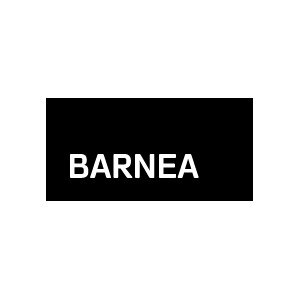Best Water Law Lawyers in Israel
Share your needs with us, get contacted by law firms.
Free. Takes 2 min.
Or refine your search by selecting a city:
List of the best lawyers in Israel
About Water Law in Israel
Water Law in Israel encompasses the legal framework governing the allocation, use, protection, and management of water resources. Israel faces unique challenges due to its arid climate and rapid population growth, making water resources both precious and highly regulated. The primary legislation is the Water Law of 1959, which establishes that all water resources are public property supervised by the state. The law aims to ensure equitable and sustainable water distribution for agricultural, domestic, and industrial uses while also protecting water quality and the environment.
Why You May Need a Lawyer
Legal issues related to water in Israel can be complex and involve multiple stakeholders, such as government authorities, municipal bodies, agricultural communities, and private individuals. Common situations where legal help is necessary include:
- Disputes over water rights and allocations
- Applications for water use permits or licenses
- Regulatory compliance for farmers and industrial entities
- Challenges regarding water tariffs and payments
- Litigation over pollution or contamination of water sources
- Development approval processes that involve water infrastructure
- Resolving cross-border or intercommunity water usage disputes
- Representation in regulatory proceedings or appeals
- Advice on water efficiency and environmental protection regulations
A lawyer with expertise in Water Law can help navigate the legal framework, advocate on your behalf, and ensure your interests are protected.
Local Laws Overview
Israel’s water laws are characterized by strict regulation and central oversight. Key aspects include:
- Ownership of Water: As per the Water Law of 1959, all water resources, including surface water, groundwater, and rainfall runoff, are state property.
- Permitting and Licensing: Any extraction, use, or development involving water generally requires a permit or license from the Water Authority.
- Water Authority: The Israel Water Authority sets policies, allocates water, sets tariffs, and enforces regulations.
- Water Prices: Water pricing is government-regulated, with different rates for agriculture, industry, and households.
- Pollution Prevention: Discharging pollutants into water sources is strictly controlled under the Water Law and related environmental protection regulations.
- Desalination and Reclamation: The law supports innovative methods such as desalination and recycling to supplement Israel’s natural water supply.
- Enforcement: Violations of the Water Law can result in administrative, civil, or criminal penalties.
Frequently Asked Questions
What is the main law regulating water in Israel?
The central piece of legislation is the Water Law of 1959, which defines water resources as state property and establishes the fundamental principles of water management in Israel.
Who is responsible for managing water resources?
The Israel Water Authority is the main governmental body responsible for the regulation, distribution, and management of water resources.
Do I need a permit to use or extract water?
Yes, in nearly all cases, a permit or license from the Water Authority is required for activities such as drilling wells, drawing groundwater, or diverting streams.
Can private individuals own water sources?
No, all water resources are owned by the state. Private ownership of water sources is not permitted under Israeli law.
How are water prices determined?
The Water Authority sets water tariffs according to use type, such as domestic, agricultural, or industrial. Prices may change based on policy decisions and resource availability.
Is it allowed to collect rainwater for personal use?
Collecting rainwater is generally permitted for small-scale, non-commercial personal use, but larger installations or commercial use require authorization from the Water Authority.
What should I do if my water supply is polluted?
Report pollution or suspected contamination immediately to local authorities and the Water Authority. Legal remedies may be available and a lawyer can advise on seeking compensation or action against responsible parties.
How does the law address water pollution?
Strict regulations prohibit the discharge of pollutants into any water source. Offenders can face severe penalties, including fines and criminal charges.
Are there special rules for agricultural water use?
Yes, there are specific allocations and pricing structures for agricultural users. Farmers must comply with licensing, reporting, and efficiency requirements.
How can I appeal a decision by the Water Authority?
Decisions of the Water Authority can be appealed through administrative or judicial processes. Legal representation is recommended to navigate the appeal effectively.
Additional Resources
Those seeking more information or assistance in the field of Water Law in Israel may find the following resources useful:
- Israel Water Authority - information on permits, pricing, regulations, and enforcement
- Ministry of Environmental Protection - guidance on pollution prevention and remediation
- Regional Water Corporations - contact for localized water supply issues
- Israel Bar Association - directory of lawyers specializing in environmental and water law
- Academic and research institutions specializing in water resources and law
- Non-governmental organizations (NGOs) focusing on water rights and environmental advocacy
Next Steps
If you require legal assistance related to Water Law in Israel, consider the following steps:
- Clearly define your issue or question regarding water rights, permits, pollution, or disputes
- Gather all relevant documents, correspondence, and evidence
- Contact the relevant governmental body, such as the Water Authority or your local water corporation, for initial guidance
- Consult with a lawyer experienced in Water Law to assess your situation and receive tailored advice
- If necessary, instruct your lawyer to represent you in regulatory or court proceedings
- Stay informed about your rights and obligations under Israeli Water Law to prevent future legal issues
Early legal intervention can be crucial in resolving water-related matters efficiently and protecting your interests.
Lawzana helps you find the best lawyers and law firms in Israel through a curated and pre-screened list of qualified legal professionals. Our platform offers rankings and detailed profiles of attorneys and law firms, allowing you to compare based on practice areas, including Water Law, experience, and client feedback.
Each profile includes a description of the firm's areas of practice, client reviews, team members and partners, year of establishment, spoken languages, office locations, contact information, social media presence, and any published articles or resources. Most firms on our platform speak English and are experienced in both local and international legal matters.
Get a quote from top-rated law firms in Israel — quickly, securely, and without unnecessary hassle.
Disclaimer:
The information provided on this page is for general informational purposes only and does not constitute legal advice. While we strive to ensure the accuracy and relevance of the content, legal information may change over time, and interpretations of the law can vary. You should always consult with a qualified legal professional for advice specific to your situation.
We disclaim all liability for actions taken or not taken based on the content of this page. If you believe any information is incorrect or outdated, please contact us, and we will review and update it where appropriate.
Browse water law law firms by city in Israel
Refine your search by selecting a city.

















